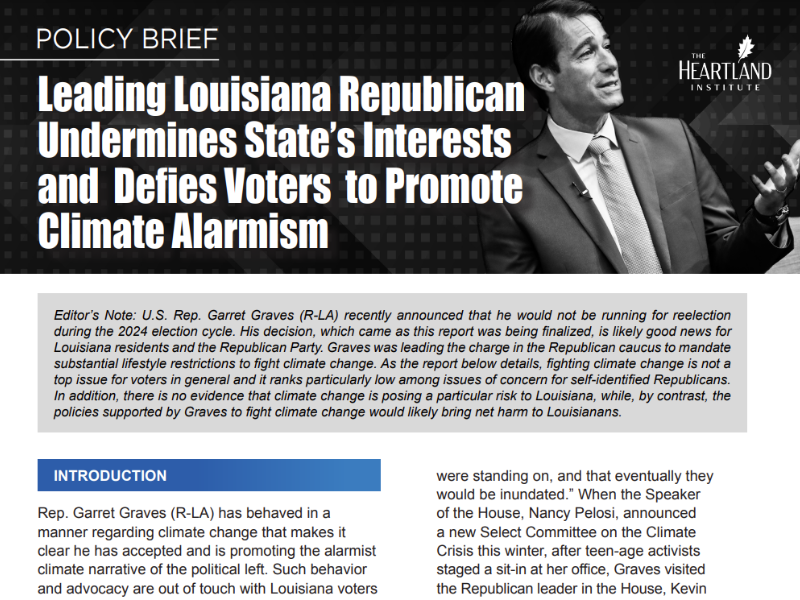The U.S. Supreme Court has heard arguments in a combined case challenging the constitutionality of Arizona’s tax credit scholarship program. It was the first school choice case to reach the Court in nine years.
Arizona’s scholarship program offers individuals a 100 percent tax credit up to $500 (or $1,000 for couples filing jointly) for donations to state-authorized school tuition organizations. Those charitable groups then award scholarships for students to attend a private school of their parents’ choice.
The Ninth U.S. Circuit Court of Appeals in 2009 ruled Arizona’s scholarship program unconstitutionally advances religion because most taxpayers donate scholarship funds to organizations supporting religious schools.
The cases before the Supreme Court are Garriott vs. Winn and Arizona Christian School Tuition Organization vs. Winn. A decision is expected before July 2011.
Establishment Clause Argued
Lawyers representing the state of Arizona and the U.S. Department of Justice argued the program does not violate the First Amendment because parents and students, not the government, decide where to use the scholarships.
“Arizona’s tuition tax credit does not violate the Establishment Clause, because it’s a neutral law that results in scholarship programs of private choice,” Paula Bickett, Arizona’s chief counsel for civil appeals, told the justices during the Nov. 3 hearing in Washington, DC.
Paul Bender, an Arizona State University law professor and attorney with Arizona’s chapter of the American Civil Liberties Union, argued the school tuition organizations illegally distribute tax revenues to religious groups.
“Our claim is not that money is going—that state money is going to religious schools,” Bender told the justices. “Our claim is that state money is being given to the beneficiaries of a state spending program on the basis of religion.”
All Money Is State Money?
Tim Keller, director of the Institute for Justice’s Arizona chapter, helped defend the Arizona School Tuition Organization Association in the case. He says he’s unaware of a single case—other than the Ninth Circuit’s decision last year—supporting the ACLU’s claim.
“As I understand [Bender’s] argument, he says tax credits constitute state funds. I’m not sure whether he believes, or is willing to unequivocally admit, that tax deductions also constitute state funds,” Keller said.
“The logical implication of the ACLU’s argument that tax credits constitute state funds is that all money is state money except that which the state declines to collect from us in taxes,” Keller explained. “I do not believe a majority of justices is willing to accept that proposition.”
Threat to All Religious Institutions
Andrew LeFevre, who is launching the Arizona Choice in Education Foundation, a school tuition organization near Phoenix, says the Court’s decision could have far-reaching implications for charitable giving.
“The lower court’s flawed reasoning says that giving taxpayers an income tax credit for donations to religiously affiliated scholarship organizations constitutes governmental advancement of religion,” he said. “If that’s the case, then deductions for donations to churches, synagogues, and other religiously oriented charities would also be unconstitutional.”
Zelman Revisited
If allowed to stand, the Ninth Circuit’s ruling would end one of the nation’s longest-running scholarship tax credit programs. Arizona’s program was enacted in 1997 and distributed $52 million in scholarships last year to 27,000 students attending 373 secular and religious private schools.
A Supreme Court ruling in favor of the Arizona program would clear the way for other states to adopt tax credit scholarship programs. Currently 10 states—Arizona, Florida, Georgia, Indiana, Illinois, Iowa, Louisiana, Minnesota, Pennsylvania, and Rhode Island—offer school tax credit or tax deduction programs.
Arizona’s attorneys argue the choice program is consistent with the Court’s 2002 decision in Zelman vs. Simmons-Harris, which upheld the constitutionality of Ohio’s school voucher program.
“On the merits, this case is controlled by the Supreme Court’s precedents, such as Zelman and [Mueller vs. Allen in 1983], in which the Court upheld school choice programs based on private choice,” Keller says.
“Arizona’s scholarship program is controlled by private choice at every level,” he explained. “Private individuals set up scholarship organizations. Taxpayers freely decide which scholarship organizations to donate to, and parents decide where to enroll their children. The government remains completely neutral and does not encourage either taxpayers or parents to choose religious organizations or schools.”
Question of Standing
John Eastman, director of the Center for Constitutional Jurisprudence at Chapman University in Orange County, California, says the court may not judge the case on its merits at all and instead rule the plaintiffs have no standing to sue.
“The Court could very well avoid deciding the case on its merits, and say instead that taxpayers have no standing to sue in religion clause cases,” said Eastman, who filed an amicus brief in the Winn case. “In that event, the Court would simply vacate the Ninth Circuit’s decision.”
Eastman said the Court took a similar course in 2004 in Newdow vs. Elk Grove, which challenged the constitutionality of the phase “under God” in the Pledge of Allegiance.
Keller says he isn’t so sure enough justices will want to throw the case out on what amounts to a technicality.
“The swing vote, Justice [Anthony] Kennedy, did not appear receptive to the standing issue, so I do think there is a good chance they will reach the merits,” Keller said. “And on the merits I remain optimistic that the Court will find the program is constitutionally permissible.”
Ben Boychuk ([email protected]) is managing editor of School Reform News.




